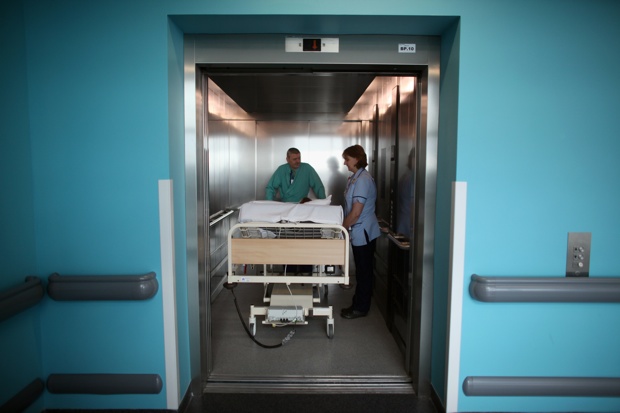In February, an NHS surgeon came to The Spectator’s offices to discuss a piece he felt it was time to write. He wanted to blow the whistle on health tourism. Professor J. Meirion Thomas knew he was taking a tough decision, given the hostile reaction of the doctors’ unions and civil servants to anyone who makes the slightest criticism of the NHS. But the Francis Report into the Stafford Hospital scandal had just come out, reminding GPs of their ‘statutory duty of candour’. The professor said that he would like to expose what he regarded as the systematic abuse of the NHS.
His Spectator article was read at the highest levels of government. At the time, the Department of Health insisted that there was nothing to see — that health tourism cost just £12 million, a trifling figure in relation to the gargantuan NHS budget. Jeremy Hunt, the Health Secretary, went on to commission an independent report which found differently. Non-British residents are each year receiving about £1.9 billion of free treatment for which by law they ought to be charged. Health tourism — people coming to Britain deliberately to use the NHS — accounts for between £70 and £300 million of this figure.
It is a disgrace that it has taken a surgeon to break ranks in order to provoke debate on the subject. The Department of Health is part of an orthodoxy which has consistently tried to deny that health tourism exists at all. It has become a certainty in recent months that within hours of any politician uttering the words ‘health tourism’, Dr Clare Gerada, chair of the Royal College of GPs, will pop up somewhere on the BBC denouncing fears that foreigners are abusing the NHS as scare-mongering and protesting that doctors should not have to act as ‘border guards’, even though nobody is suggesting that.
Even after this week’s report, we have heard protestations that it doesn’t really matter, because £2 billion is only 2 per cent of the NHS budget. But you can’t waft away a public spending problem on the grounds that the amount of money being wasted is 2 per cent of the total. Budgets are made up of 2 per cent here, 2 per cent there. If you don’t approach public spending with the assumption that every percentage point matters, you will rapidly end up with a national budget crisis.
As Mr Hunt explained, even the £500 million he hopes to recover in unpaid NHS bills would be enough to employ an extra 4,000 doctors. Those who complain it is inhumane for the NHS to try to collect money from foreign nationals for non-emergency treatment need to explain why it would be a bad idea for over-stretched hospitals to have these extra staff. And as Meirion Thomas said, it’s not just about the cost — but the principle. It’s supposed to be a National Health Service, not an International Health Service.
The NHS fails to collect the money due to it from foreign patients because, unlike the insurance-based public health systems in other European countries, it has no proper process for collecting the money, nor even for checking whether a patient is eligible for free treatment. NHS rules state that patients must be ‘ordinarily resident’ in the UK to qualify, but there is only a vague definition of what that means. Nor, in the computer-scarce zone that is the NHS following the debacle of the abortive £10 billion IT system, is there any central record of entitlement to free health care. It is all too easy for a doctor, put under pressure by a patient, to tick the ‘ordinarily resident’ box and be done with it. Each doctor doing so may feel he is being humane, but such decisions add up to something rather less good: those who have paid taxes to fund the NHS are left waiting for operations while limited NHS resources are swallowed up in an attempt to treat the rest of the world.
It is disingenuous of critics to describe efforts to tackle health tourism as ‘inhumane’. It implies that every NHS treatment is a matter of life and death when of course it is not. No one wants people in need of emergency treatment to be forced to produce a credit card before they are wheeled in for surgery. But as Professor Thomas explained, there is a big difference between emergency treatment, which needs to be done now, and urgent treatment, which might need to be done soon but can easily wait for a flight home. The vast majority of NHS treatments, however, fall into neither category. It is not cruel to suggest that a foreign visitor cannot have a free knee replacement on the NHS.
This summer Jeremy Hunt announced a £200 charge for migrants to access the NHS. This week he has gone further and promised a centralised system for collecting money owed to the NHS. These measures are a start, but they will not stop health tourists from falsely claiming to be ordinarily resident in this country. For this, there has to be some kind of card or database to establish entitlement. In the short term the NHS could use National Insurance numbers, which are issued after careful checks on everyone — foreign national or British — who wants to earn money here.
It is to Mr Hunt’s immense credit that he is siding with the patient and taxpayer rather than the NHS establishment. Long may that continue.






Comments